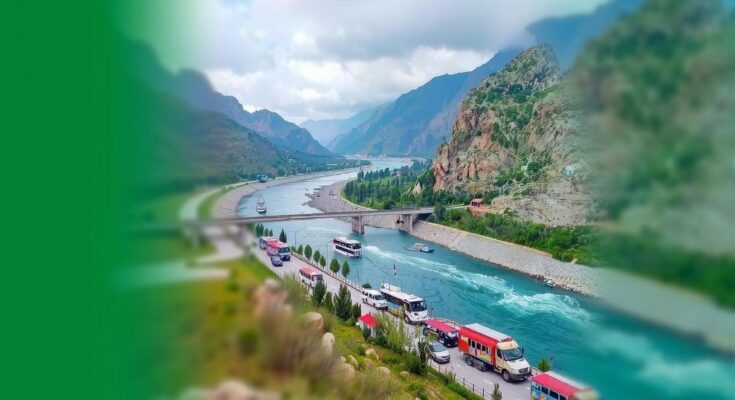Uzbekistan’s envoy, Ismatullah Irgashev, stated that Afghan citizens are entitled to water from the Amu Darya River, but highlighted the importance of determining the equitable use of this resource between Afghanistan and Uzbekistan. The Qosh Tepa Canal project, which aims to utilize a significant portion of the river’s flow, has been a point of concern for Uzbekistan due to its potential impact on regional water dynamics. Despite the apprehensions, there are currently no disputes between the two nations regarding this issue.
Ismatullah Irgashev, Uzbekistan’s special representative for Afghanistan, affirmed that Afghan citizens have the entitlement to utilize water from the Amu Darya River. He stated, however, that the primary concern lies in the equitable distribution of water usage between the two countries, emphasizing the need for clarity on how much each nation would consume, particularly in light of the river’s diminishing levels. The Uzbek representative recalled that a collaborative commission has been established between Uzbekistan and Afghanistan to explore the construction of the Qosh Tepa Canal, which is expected to stretch 285 kilometers with a width of 100 meters and a depth of 8.5 meters. The proposal includes the canal drawing an annual quota of up to 10 cubic kilometers of water from the Amu River, representing approximately 20% of the river’s total flow. Authorities in Uzbekistan expressed apprehension that the canal’s construction might disrupt the regional water balance in Central Asia, while the Islamic Emirate of Afghanistan (IEA) has reassured that such developments will not detrimentally affect Uzbekistan. Overall, despite potential concerns, Irgashev indicated that there are currently no conflicts regarding these discussions between the nations.
The Amu Darya River, a vital water source in Central Asia, flows through Afghanistan and Uzbekistan and plays a crucial role in the agricultural and economic activities of both countries. The river’s water distribution is a longstanding issue due to varying national demands, climate change impacts leading to water scarcity, and geopolitical tensions in the region. The proposed Qosh Tepa Canal project aims to enhance water accessibility for Afghanistan, but it has raised concerns in Uzbekistan regarding its potential to significantly alter the regional water balance. The creation of a joint commission marks a diplomatic effort to address these shared water resource challenges amicably.
In conclusion, the dialogue surrounding the Amu Darya River’s utilization underscores the importance of cooperative water management between Afghanistan and Uzbekistan. The establishment of a joint commission signifies a proactive approach to mitigating future conflicts over water resources. Clarity on water quotas and sustainable usage will be essential to ensuring that both nations can meet their agricultural and economic needs without jeopardizing the environmental health of the region.
Original Source: www.ariananews.af




